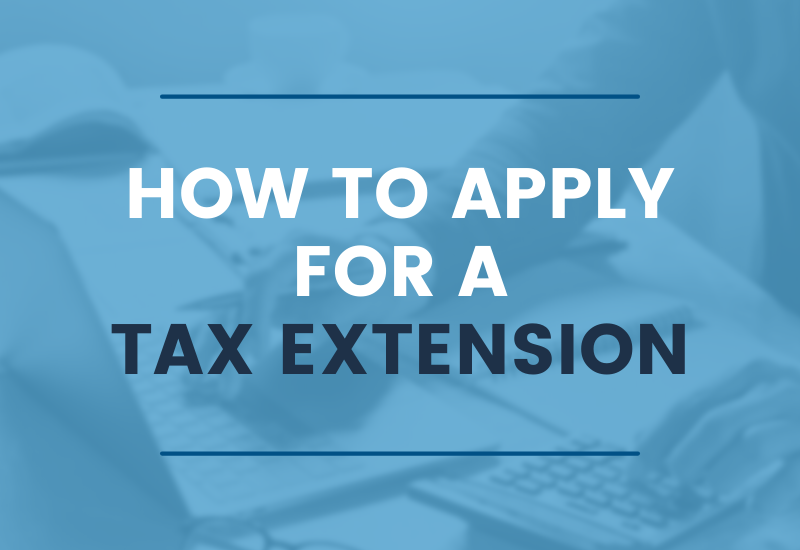Applying for a Federal Tax Extension
- March 24, 2022
- Posted by: CKH Marketing
- Categories: Current Events, Tax tips

Tax deadlines seem to have a way of sneaking up on you, so filing for a tax extension might be something you need to do. If you need more time to prepare your return—whether you are busy with school, travel, a personal emergency, or are simply unprepared—you can request a six-month filing extension by submitting the proper form to the Internal Revenue Service. Here is what you need to know:
Key Takeaways:
- Filing for a tax extension can be done either online or by mailing a paper form.
- Tax extensions are generally six months in length.
- Any overpayment will be refunded once you file your tax return.
- An extension for your filing deadline does not extend your payment deadline.
- Securing an extension will give you until Oct. 15, 2022, to file your 2021 individual tax return, as opposed to April 18, 2022.
Filing for a Tax Extension:
If you need an extension to file your individual income tax return, you must file Form 4868, also known as an Application for Automatic Extension of Time to File U.S. Individual Income Tax Return.
The deadline to file for an extension is the same as the date your tax return is normally due, this year, that deadline is on April 18, 2022.
Requesting an extension is relatively simple. You will need to provide some identification information (your name, address, Social Security number, and your spouse’s Social Security number) and your individual income tax information (estimation of your total tax liability for the year in question, total payments you’ve already made, the balance due, and the amount you are paying).
Filing for an extension can be a smart choice, so if you realize ahead of time that you will need an extension, don’t wait until the last minute to file. The sooner you get it in, the more time there is to fix any potential errors that may come up before the deadline passes and the extension window closes.
More Time to File, Not More Time to Pay
It’s important to keep in mind that the extension gives you more time to file, not more time to pay. You will still have to pay your taxes by that year’s original due date, even if the IRS grants you an extension to file later.
When you file Form 4868, you will need to pay the estimated income tax you owe. So, if you think you may owe taxes when it comes time to file your return, you should estimate how much you will owe and subtract any taxes that you have already paid (for example, through tax withholding on your paycheck).If your estimation is on the high side and you end up overpaying, you will get a refund when you eventually file your return. You’ll also avoid any late payment penalties and interest accumulating.
How Do I Know My Tax Extension Request Has Been Approved?
If you sent Form 4868 electronically to the IRS, you should receive an email within 24 hours confirming that it has been received. For mail applications, you won’t receive an email and will most likely need to call the IRS for confirmation that your request is in the right hands.
The IRS won’t contact you following the filing of a tax extension unless there is an issue with it. That does not happen too often, although there are occasions when a tax extension request may be denied.
Why Might a Tax Extension Request Be Rejected?
In most cases, applications are rejected for minor problems that can easily be fixed. If it comes down to a misspelling or providing information that doesn’t align with IRS records, the tax authority will usually give you a few days to sort out those errors and file the form again—this time accurately.
The IRS tends to take less kindly to unrealistic tax liability estimates. If it disagrees with your figures, your application for an extension may be denied and you could even be hit with a penalty.
If you have any questions or need help filing for an extension, CKH Group is here for you! Reach out and let’s chat, you can book a free online consultation here, to book a free consultation or you can call us at 1-770-495-9077 or email us at info@ckhgroup.com
The above article only intends to provide general financial information and is based on open-source facts, it is not designed to provide specific advice or recommendations for any individual. It does not give personalized tax, financial, or other business and professional advice. Before taking any form of action, you should consult a financial professional who understands your particular situation. CKH Group will not be held liable for any harm/errors/claims arising from the articles. Whilst every effort has been taken to ensure the accuracy of the contents, we will not be held accountable for any changes that are beyond our control.
